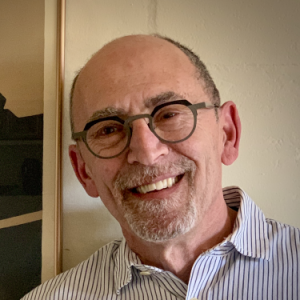Dr. Jessica Moe
Assistant Professor
Emergency medicine; overdose prevention; substance and opioid use in emergency departments; clinical epidemiology
Claire Pitcher
Registered Nurse, PhD student
Child and youth mental health and substance use, public health, harm reduction
Max Cynader, CM, OBC, PhD, FRSC, FCAHS
Professor of Opthalmology & Visual Sciences
Eye diseases, glaucoma, dyslexia, stroke, neurotrauma, memory, vision, learning disabilities, hearing development, recovery after brain damage, ischemia, gene therapy
Evan Wood, MD, PhD, ABIM, FRCPC
Professor
Injection drug use, population health, epidemiology, urban health, HIV/AIDS, antiretroviral therapy, addiction, opioids, fentanyl
Anita Palepu, MD
Professor and Program Director, Clinical Investigator Program
Urban health, addiction, HIV, medical editing, editorial independence, homelessness
Thomas Kerr
Associate Professor, AIDS Division
Harm reduction, injection drug users, HIV / AIDS, safe injection site, addiction, opioids, fentanyl
Catharine Winstanley, PhD
Associate Professor
Impulsivity, gambling, behavioural neuroscience, frontal cortex, dopamine, serotonin, addiction
Dr. Judy Illes, CM, PhD
Professor
Distinguished University Scholar
UBC Distinguished Scholar in Neuroethics
Ethics, brain, biomedicine, bioethics, neuroscience,
Dr. Illes is a world-reknowned pioneer of the field of neuroethics that was formally established in early 2000 to directly align biomedical ethics with neuroscience in research, clinical practice, and the commercialization of brain health. She received her PhD from Stanford University, and holds faculty appointments at UBC, the University of Washington in Seattle, and Clare Hall at Cambridge University in England. She is co-lead of the Canadian Brain Research Strategy of the International Brain Initiative, and sits on numerous advisory boards, including the Standing Committee on Ethics and the Institute for Neuroscience Mental Health and Addiction of the Canadian Institutes of Health Research. She also is a newly appointed Director-at-Large of the Canadian Academy of Health Sciences. Dr. Illes is often asked to provide expert consultation and testimony on ethics matters involving conflict of interest, neuroprivacy, and ownership of research data, governance, and regulation. She received the Order of Canada, the country’s highest citizen award, in 2017.
Brian Warriner, MD
Clinical Professor
All aspects of anesthesia practice – drugs, effects, monitoring, pharmacology, physiology, respiratory function, cardiac function, operative assessment, anesthesia for different disease processes, airway management, addiction in anesthetists, opioids, fentanyl
Reinhard Michael Krausz, MD, PhD, FRCPC
Professor
UBC PHC Leadership Chair for Addiction Research
Mental health, E mental health, psychiatry, vulnerable urban, addiction psychiatry, addiction treatment
Adam Lund
Clinical Associate Professor
Event medicine, mass gathering medicine, mass gathering health, music festivals, electronic dance music events, special events, marathon, triathlon, emergency medicine, obstacle adventure courses, emergency department overcrowding, opioids, fentanyl, prehospital care, paramedicine
Edward Kruk, MSW, PhD
Associate Professor
Child and family policy and practice, fatherhood and fathering, family mediation and conflict resolution, co-parenting after divorce, substance and other addictions, harm reduction
Victoria (Vicky) Bungay, PhD, RN
Professor
Sexuality, sex work, harm reduction, drug use, intersectionality, ethnography, communication technologies, community based research
Shimi Kang, MD, FRCPC
Clinical Associate Professor
Mental Health, Addiction, & Motivation Specialist
Medical Director, Child and Youth Mental Health, Vancouver Community
Psychiatry, mental health, parenting
Dr. Stan Floresco, PhD
Professor
Dopamine, reward, decision making, cognitive flexibility, frontal lobes, addiction,
Lindsey Richardson, D.Phil
Associate Professor
Drug Use, Poverty, Social Determinants of Health, Social Welfare/Income Assistance, Precarious Employment
Peter Reiner, VMD, PhD
Professor
Neuroethics, Cognitive Enhancement, Smartphones, Persuasive Technologies, Extended Mind, Autonomy, tDCS, Direct-to-consumer neurotechnology, neuromarketing, nudging
Mark Haden, MSW
Adjunct Professor
Drug policy, illegal drugs, regulation of illegal drugs, cannabis, marijuana, psychedelics, hallucinogens, heroin, cocaine, addiction, parenting children with addiction issues, opioids, fentanyl
Guy Faulkner
Professor, CIHR-PHAC Chair in Applied Public Health
Physical activity, mental health, public health
Kerry Jang, PhD
Professor
Urban health, drug policy with regards to marijuana/cannabis, overdoses












